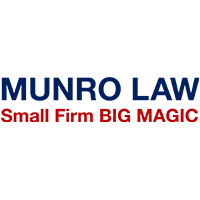Harrisonburg Misdemeanor Lawyer, Virginia
Sponsored Law Firm
-
 x
x

Click For More Info:
-
Tillotson & Martin, LLP
DWI/DUI Defense throughout the Entire Commonwealth of Virginia » view mapCriminal Defense Virginia’s Premier DWI/DUI Defense Firm
Michael C. Tillotson is the one to choose when it comes to DWI/DUI defense in Virginia.
800-878-1431
Not enough matches for Harrisonburg Misdemeanor lawyer.
Below are all Harrisonburg Criminal lawyers.
Robert S. Hahn
✓ VERIFIEDCriminal, Divorce & Family Law, Business, Accident & Injury
ROBERT S. HAHN founded his legal practice in 2003 when he returned to the Shenandoah Valley, serving the needs of clients in criminal, family law, civ... (more)
Robert G. Munro
✓ VERIFIEDCriminal
Criminal & Family Law Specialist
Criminal Defense & Child Custody are complex cases and require strong effective representation. Munro Law Firm stands ready for you with free consults... (more)
Scott Timothy Hansen
Criminal, Traffic, Immigration, DUI-DWI
Status: In Good Standing Licensed: 24 Years
FREE CONSULTATION
CONTACTKathleen M. Mizzi Todd
Criminal, Traffic, Wills & Probate, Estate, Landlord-Tenant
Status: In Good Standing
FREE CONSULTATION
CONTACT Michael Tillotson Newport News, VA
Michael Tillotson Newport News, VA AboutTillotson & Martin, LLP
AboutTillotson & Martin, LLP Practice AreasExpertise
Practice AreasExpertise


